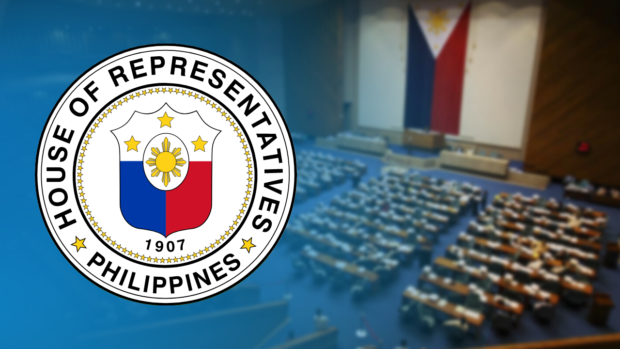DICT draws flak for underutilization of budget; blames ‘problems’ of past admin

INQUIRER FILE PHOTO
MANILA, Philippines — Lawmakers have called out the Department of Information and Communications Technology (DICT) for not utilizing the budget given to the department in 2022, but the agency explained that it is still reorganizing the projects that the past administration left behind.
During the House committee hearing on appropriations, DICT officials presented the current state of their budget utilization months ahead of the executive’s submission of its proposed 2024 budget to Congress.
DICT’s presentations showed that for the allocations in 2022 and the continuing fund for 2023, only three percent of the P827 million ICT and Cybersecurity Policies Development and Management budget under Program 1 (ICT Governance Program) had been obligated, and two percent disbursed.
Moreover, under Program 3 (ICT Capability Development), only 11.40 percent of the P146 million funds for Industry and Countryside Development in 2023 were obligated, and only 5.25 percent was disbursed.
DICT Assistant Secretary Heherson Asiddao admitted that they have a very low utilization rate, as they took a step back and analyzed the past administration’s projects, especially after discovering that companies are asking for payments for projects that were undertaken without a contract.
“We have a very low utilization rate. Aside from that, we were actually surprised there are a lot of companies and agencies asking us to payout a lot of payables, which based on our initial investigation and due diligence reports that we have done for the department, we have noticed certain projects without any contract,” Asiddao told the committee.
“So what we have done was to step back, let’s check what happened, what is the program of the previous administration as far as the projects are concerned,” he added.
According to Asiddao, they are looking for ways to implement projects crafted under the administration of former president Rodrigo Duterte more efficiently and beneficially.
One of the programs mentioned by Asiddao is the Free WiFi program, where funds were transferred to the Metropolitan Manila Development Authority (MMDA), which Northern Samar 1st District Rep. Paul Daza tagged as irregular in a privilege speech last November 2022.
The funds have been returned to the treasury, DICT said.
READ: Solon questions DICT, MMDA for transferring fund for free wifi program sans Congress nod
READ: Solon: P1.2-B free Wi-Fi funds transferred to MMDA finally returns to treasury
“There are programs like for example, the contract made with the MMDA of more than P2 billion, of which P1.1 billion was already disbursed before we already came in — that’s as of June 2022. Projects like these, Madam Chair, we did not continue,” Asiddao told committee senior vice chair and Marikina 2nd District Rep. Stella Quimbo.
“Aside from that, there’s another item in the Free WiFi projects as well, which we did not continue because it is our firm belief that there are better ways on methodology on how to deliver more efficiently and effectively and will benefit the public as well,” he added.
Asiddao further explained that a review also affects the 2023 budget and operations because the past DICT management was the one who crafted the budget, even as it was approved under the term of President Ferdinand Marcos Jr.
Marcos, who won in the May 2022 elections, took office on June 30. The budget was submitted to Congress in August 2022 and still had input from offices under the Duterte administration.
“So with all these things that came to our surprise, we see, we deem it more appropriate that we should have a diligent effort to review all the programs set by the previous administration for 2023 because technically, the budget for 2023, Madam Chair is still the budget of the previous administration,” he noted.
Quimbo however highlighted that a lot of agencies have encountered issues attributed to the change in management after the new administration came in, but it was only DICT that spent so little.
“Disbursement is P318 million, actually ‘yong 43.68 percent. That’s actually misleading because you divided the 318 (million) by what was obligated. If you divide 318 million by the allotment, that’s actually only 2.27 percent, so what we have here is a non-functioning agency. That was what DICT was, unfortunately I have to describe that agency in these words,” Quimbo said.
“You know this is unlike other agencies, the problem in other agencies is there are so many unfilled positions, but they spent their money. With you, you have 75 percent of your posts filled, but you did not spend your money due to lack of procurement. That’s okay because DICT is capital-intensive. But is that what is supposed to happen, due to failure to procure?” she asked.
Undersecretary Manuel Anthony Tan meanwhile explained that they are still adjusting, as the DICT is a relatively new agency being created just in 2016.
“Madam Chair as a background, since 2016, DICT has already had five secretaries, including [three months] in 2021 wherein we did not have a secretary. In addition also that there were changes in the undersecretaries and assistant secretaries during that said period. There’s a constant change in personnel in the third level,” Tan said.
“Essentially, we started hiring during the COVID-19 pandemic. There are changes in personnel, there are changes in the project […] There are procedural things that needed to be improved, since essentially the DICT was a new agency in 2016. So until now we’re still adjusting to our procedures in adherence with DBM and COA findings,” he added.
RELATED STORIES:
DICT admits to House: Our budget utilization was ‘pitiful’
DBM chief to gov’t agencies: Use budget in full or face cuts